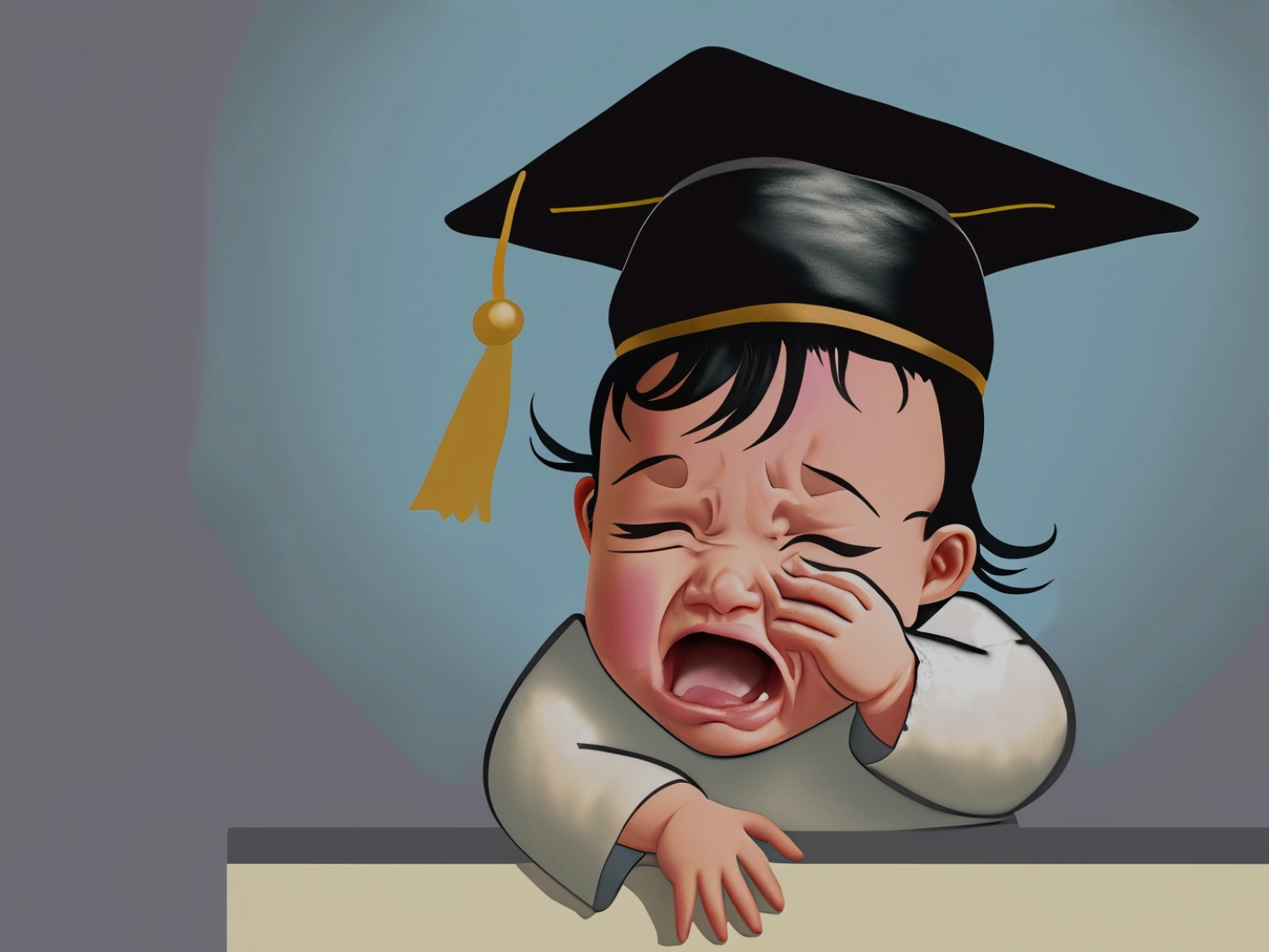
Editor’s Note: This article was originally published by The American Postliberal on March 22, 2024 and is crossposted here with permission.
If you have ever been in a classroom where some sort of deadline is approaching, chances are that you have witnessed what I like to call a “half-hearted mini rebellion.” This is a situation in which students, feeling the class to be unfairly difficult, begin acting “butthurt,” passive-aggressively suggesting something like an extension, or an easing of the curriculum.
Usually spoken in a smarmy whine, these little coups usually begin with one student—usually the class “yapper”—raising their hand and saying something like “Hey, professor, umm, *chuckle* I just umm … this essay was assigned alongside forty whole pages of extra reading, and it’s like … we only have a week do it … so I feel like, you know, *looks around at rest of class* it just feels like we’re being expected to do a lot…”
If the professor does not take control of the situation by quickly slapping down the suggestion, the rest of the class sees an opening, and begins to dogpile with similar “concerns.”
This dynamic—of students feeling like they can push their teachers around—is painfully common and deeply disordered. I believe, in conjunction with many professors that I’ve spoken to, that this spirit of butthurt reflects itself in the year-over-year grade inflation. Students have an expectation that teachers will conform to their standards. They believe a benchmark of rigor and excellence resulting in middling grades for middling thought is cruel and inconsiderate of the fact that their careers are on the line. This is especially a problem for professors without tenure, whose careers cannot stand to be met with a bombardment of negative reviews of students crying that the class was “unfair.”
Many older professors, evidently, also hold back from harsh standards because they simply do not have the patience to deal with crybaby students. If you have ever graded a paper before, you know the difference between “this paper was concise, thorough, and had few—if any—holes. Stunning work. A!” and “well … this paper is sort of incoherent in parts and overall slapdash, but it technically answers the question, albeit very imperfectly. Explaining what it does wrong would require that I tear it to shreds, which I do not want to do … so … A.”
This culture of students, rather than professors, setting the standards can be concisely summarized as the democratization—in the technical sense, with “demos” meaning “the people,” as opposed to the rulers—of education.
In part, the blame for this democratization lies with academia itself. There is a reason that you less often find this crybaby culture in the hard sciences than you do in the humanities. STEM, in being presented as objective and infallible, communicates to the students that they are the inferiors who must conform to the standards, rather than set them.
However, the humanities, if taught correctly, evokes this same awe. Something like the Iliad, in its endless depth, demands to be respected, studied, and mastered. There is nothing squishy or superfluous about it which would lead a student ever to think their analysis sufficient… unless it was presented to said students as dusty, problematic relics written by dead white men.
This problem is also made worse when the work is taught haphazardly and without expertise—surely, the lowered standards of students has led to lowered standards in the academy, where many of those students end up working. In spite of these lowered standards, students should still cut the ”half-hearted mini-rebellions” and take the standards set for them on the chin. To reappropriate a word that has been gravely misused and thankfully retired from the conservative movement: don’t be a snowflake!
My favorite professors have always been the no-nonsense ones. What use is an expert if they do not use their expertise to show you your mistakes? I have had many essays, be they on the Odyssey or on Plato, which I thought were good that ended up getting totally torched … and that is wonderful! They deserved to be torched. The only way to exit midwit sophomore—which translates from greek to “wise fool”—territory is to be challenged with the standards of a master! I am literally a sophomore, so nobody needs a master more than me.
Knowing that you know nothing, humbly hitting the books, and asking lots of questions—so as to know a little less nothing—is the essence of wisdom, and what we should all strive to embody.
Photo by Jared Gould — Adobe — Text-to-Image